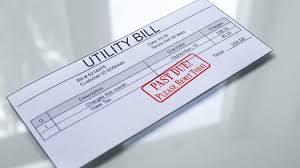Bill increases from winter storms still up in the air
Mike Seals - March 15, 2021 10:52 pm

OKLAHOMA CITY (KFOR) – It’s been a month since the record cold and snow caused rolling blackouts as utility companies struggled to keep up with demand.
Those companies reportedly paid 100 times the regular cost for natural gas at the time. Power authorities said the billions in extra cost would ultimately be passed along to the consumer, but when?
Shortly after the storm, state officials, legislators, and the Governor’s office promised to pitch in and help Oklahoma swallow the multi-billion dollar pill that was natural gas costs in February.
But what will that mean for the average Oklahoman’s bills?
“The simple answer is we just don’t know yet. Will it be a big number? Yes, we’re sure it will be a big number,” said Matt Skinner of the Oklahoma Corporation Commission.
The Oklahoma Corporation Commission weighing in on what Oklahomans might be paying on their power bills.
Currently, most large utility companies have filed the paperwork to raise fuel cost rates but both sides have agreeing to defer the charges until a plan of action can be agreed upon.
“All efforts are being made to figure out a way that these extraordinary cost can be spread out over time to lessen the impacts of the bill,” said Skinner.
OG&E has put out a tentative plan to cover their reported 1 billion dollar debt by increasing customer rates by 10% over the next ten years, but that will not start on April’s bills.
ONG officials say they are still working on a plan but will have a number of payment plans and financial resources available to customers.
Officials say for some small community gas systems that aren’t regulated by the corporation commission, it’s a different story.
“There are other communities that are dealing with bills that I would categorize as catastrophic,” said Kenneth Wagner, Oklahoma Secretary of Energy.
So is there help from the outside to offset the potentially huge energy bills?
“We believe that the (U.S.) President thru executive action can make that happen,” said Wagner.
The State Secretary of Energy referring to a letter sent by Governor Stitt to President Biden over the weekend asking Biden to expand the Low Income Housing Energy Assistance Program. The letter also asks to use federal disaster relief funds to cover the increased commodity prices utilities paid during the storm, ultimately taking the burden of paying the bill off the average Oklahoman.
“Make sure on a pro-rated basis, across the board, that those incentive dollars or mitigation dollars would be used to reduce the long-term payout of those costs by our consumers,” said Wagner.
Legislative leaders we talked to say they have been meeting regularly to try to find a fix to this issue and a state-based plan could be out by the end of the this week.



